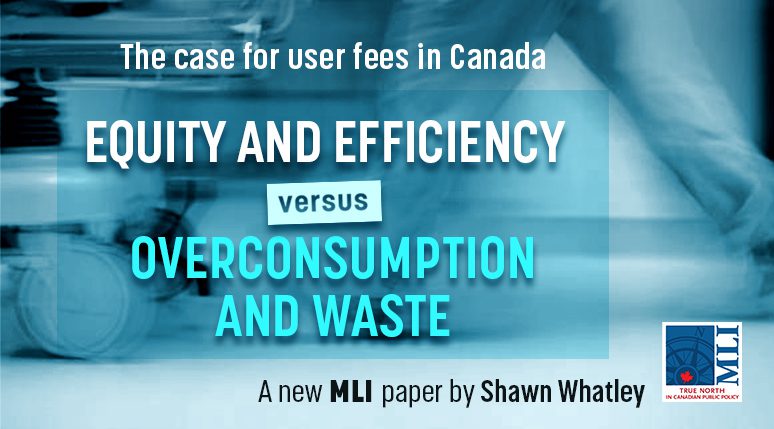OTTAWA, ON (July 21, 2022): After user fees were abandoned in 1984, Canadians failed to see an improvement in the delivery of their health care services. The reality is that without costs on users, overconsumption in health care proliferates. This has led to a rationing of the amount and quality of care that Canadians receive.
In this new MLI paper titled Equity and efficiency vs. overconsumption and waste: The case for user fees in Canada, Senior Fellow Dr. Shawn Whatley argues for the reintroduction of user fees in Canada’s health care system, revealing that far from being in conflict with universality, they ensure equal access and improve the overall efficiency of our health care system.
According to Dr. Whatley, “at some point Canada will have to admit that rationing care is a necessary part of all health insurance. Either rationing is up front, where patients get a say, or it is hidden, and patients suffer the decisions that others make on their behalf.
“User fees give patients the opportunity to decide whether they can go without service, instead of leaving the decision to a panel of experts who know nothing about a patient’s symptoms.”
Dr. Whatley makes the case that user fees discourage patients who want low-impact care from clogging up waiting rooms, leaving more capacity for patients with more urgent needs. User fees also promote the common good by providing necessary funding for the health care system in an equitable fashion.
Additionally, our current system invites “moral hazard” – the concept whereby people act more carelessly with respect to their health in the knowledge that the system will cover their expenses. Dr. Whatley argues that this drives up health care demand without improving supply. User fees help solve this by imposing costs that help improve the system’s efficiency and equity.
Though opponents of user fees warn that the policy risks vulnerable people, Dr. Whatley finds this argument unpersuasive. A properly designed policy can make exceptions for those unable to pay the fees. Indeed, although user fee exemptions for the sick, old, and poor solve equity-related concerns, the present “one-size-fits-all” approach has done nothing to improve things.
Studies and examples from around the world demonstrate that equity and universality can be maintained and health outcomes improved with user fees. Randomized trials have shown that cost-sharing decreases patient demand without harming patients’ health outcomes, a win-win for any overburdened health care system.
With the cost of maintaining the status quo increasingly untenable, “it seems time for our federal and provincial leaders to strike a task force to examine how user fees might fit into the context of Canadian medicare,” writes Dr. Whatley.
“Patient co-payment should be explored as one way to protect and expand the services Canadians need and have come to expect.”
To read the full paper, click on the button below.
***
Shawn Whatley is a Senior Fellow at the Macdonald-Laurier Institute and author of the recent book ‘When Politics Comes Before Patients—Why and How Canadian Medicare is Failing’.
For more information, media are invited to contact:
Skander Belouizdad
Communications Officer
613-482-8327 ext. 111
skander.belouizdad@macdonaldlaurier.ca







